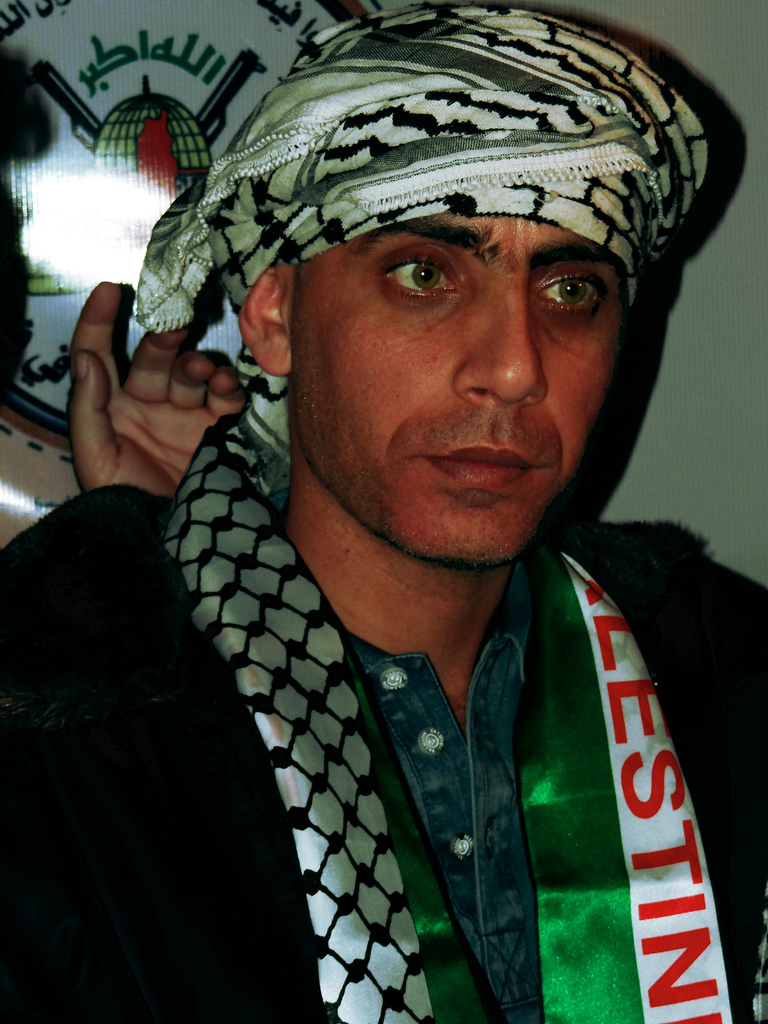7th January 2014 | Resistenza Quotidiana, Sil | Gaza, Occupied Palestine
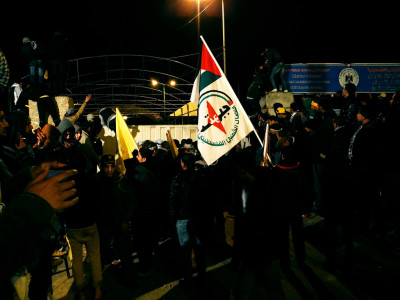
26 political prisoners, held in Israeli prisons since the Oslo Accords, were released the night of 30th December. About 5,000 others remain in prisons located in the territories occupied in 1948, a violation of international law.
Umm Dia’a thought her son would be among the prisoners released. She had been told so by neighbors, several rumors confirmed it, she got ready to celebrate, she invited friends. But the Zionists distributed the list of those to be released only the day before, and her son was not on it. Rami was there instead, the son of a friend of hers, who was not expecting it. In all, there were three prisoners from Gaza. Umm Dia’a was so sad that she did not even show up to the weekly sit-it in solidarity with the prisoners that takes place in front of the Red Cross last week. Instead, those who had received good news were celebrating by offering pastries to all participants. Maybe Dia’a will be released with the next group. The 26 prisoners released last week are the third of four groups, which include 104 Palestinian political prisoners that Israel promised to release as a sign of goodwill to start the so-called peace talks.
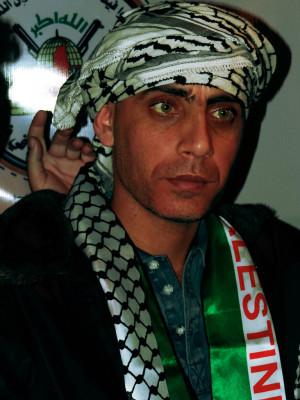
Dia’a and Rami were seized by the Zionists when they were 16 and 15 years old. Since then, they have spent most of their lives in prison, only occasionally being able to receive visits from their families, and without being able to finish their studies. Rami now is 35 years old. 20 years have been spent in prison, accused of fighting an illegal, unjust and murderous military occupation. Two days after his release , friends and relatives were still celebrating, They had built a tent, and anyone could go to shake hands and welcome this man who had returned home at last, who was just a teenager when left. Rami is in a different world from the one he had left. The population of Gaza has increased greatly, the people, the political situation, everything has changed. Yet despite the inevitable shock, he has clear ideas about what he wants. While he can rejoin his family, another 5,000 political prisoners remain in the Zionist jails. He spoke of a special case, one of many. “Among others who remain in prison is a friend of mine. He has health problems and should receive some care that he does not receive. He’s named Ibrahim Elbitar. Make sure that he is released. It can be cured!”
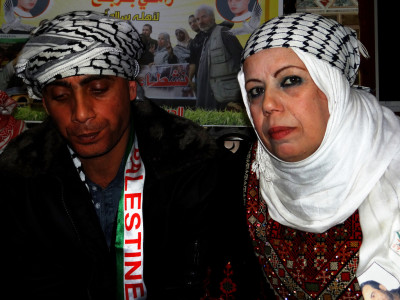
Israel released these 104 Palestinian prisoners as a sign of goodwill for the peace agreements. But another 5000 remains in jail, against international conventions, against common sense, unjustly, and with the silent complicity of international institutions and organizations. All Palestinian prisoners in Israeli jails are political prisoners. According to the Fourth Geneva Convention, Israel as occupying power has no right to deport people from the Gaza Strip or the West Bank into the 1948 territories,. The very presence of Palestinian prisoners in Israeli jails is therefore in itself illegal, as well as horrible. The liberation of about 2% of these prisoners does not take us 2% of the way down the path towards justice for all Palestinian political prisoners in Israeli jails.
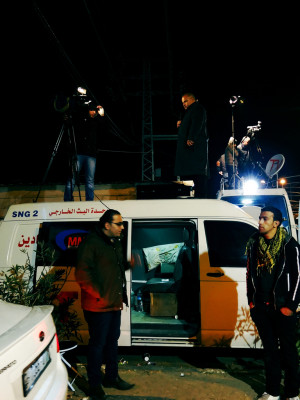
Addameer, a human rights organization that deals with Palestinian political prisoners in Israeli jails, says that prisoners have been released at the starts of many phases of peace talks. But others were arrested in the meantime, so that the total number of Palestinian political prisoners remained almost constant. And Zionists did not change policies such as administrative detention, which provides for imprisonment without any reason being declared. And that’s not all: Prisoners released in these cases must follow rules. For example, one freed in Gaza cannot leave the Strip for 10 years, and cannot be involved in political activity. Also, if they are captured again, they must serve the entire sentence from which they were released through the exchange. A famous example of this is Samer Issawi, who, released an exchange for Gilad Shalid, was seized and imprisoned again by the occupation forces. He would have to finish his entire sentence if he had not risked his life through a long hunger strike, attracting international attention and ultimately winning his release in Jerusalem.
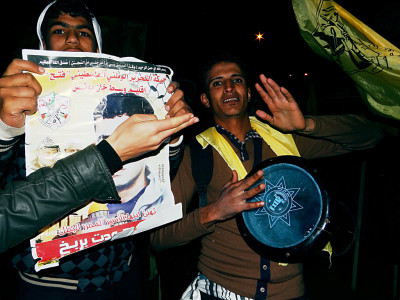
While these prisoners are released, Israel promises further expansion of illegal settlements in the West Bank and Jerusalem. That news fades into the background, making it appear the release of these prisoners is a sign of goodwill on the part of Israel, while illegal colonial expansion is not considered an insurmountable obstacle to the ” peace process.” Maybe we should change the language, quitting the search for a peace process, and looking instead for a process of decolonization. This would lead more quickly to justice and then, finally, peace, especially since this “peace process ” has more the appearance of a “Zionist colonial expansion project.”
So despite happiness at the release of these prisoners, the political victory seems at least partial. Addameer calls for the release of all Palestinian political prisoners in Israeli jails, as happened in South Africa, before the beginning of the so-called peace process.

